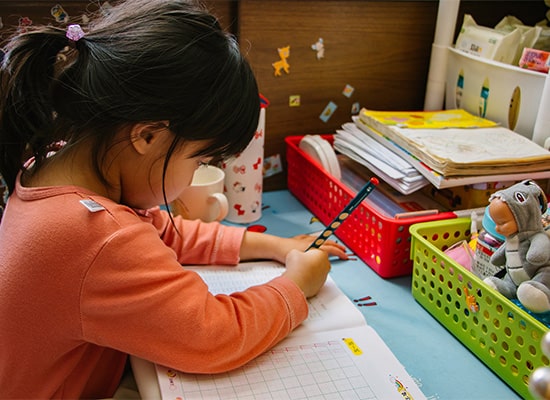Program
How to pay attention to your child?

Description
Paying attention to your child is crucial for their emotional, social, and cognitive development. It strengthens your bond and helps them feel valued and loved. Here are practical ways to give your child the attention they need:
1. Be Present
- Minimize distractions: Put away your phone, turn off the TV, and focus on your child when they are talking or seeking your attention.
- Active listening: Listen without interrupting, and respond thoughtfully to show you value their thoughts.
2. Spend Quality Time
- One-on-one activities: Set aside time each day to do something together, like reading, playing, or simply talking.
- Shared hobbies: Engage in activities your child enjoys to show interest in their world.
3. Show Physical Affection
- Give hugs, hold hands, or sit close to provide comfort and reassurance.
- Maintain eye contact during conversations to convey attentiveness.
4. Validate Their Feelings
- Acknowledge their emotions, whether they are happy, sad, or frustrated.
- Say things like, "I understand why you're upset," to show empathy.
5. Encourage and Support
- Praise their efforts and achievements, no matter how small.
- Be there for important events like school plays, sports games, or parent-teacher meetings.
6. Engage in Open Communication
- Ask open-ended questions about their day, feelings, or experiences.
- Create a safe space where they feel comfortable sharing without fear of judgment.
7. Set Aside Family Time
- Have meals together without distractions to connect and talk.
- Plan family activities like game nights, outdoor adventures, or movie marathons.
8. Be Consistent
- Create routines that include spending time with your child, so they feel secure and prioritized.
9. Teach and Learn Together
- Help with homework or explore topics they are curious about.
- Involve them in daily tasks like cooking or gardening to make learning interactive.
10. Be Patient
- Children often seek attention in their own ways. Stay patient and recognize when they need you, even if it’s not at the most convenient time.
11. Monitor and Adapt
- Pay attention to changes in their behavior or interests and adapt your interactions accordingly.
By making these efforts, you can nurture a positive relationship that promotes trust, confidence, and emotional well-being in your child.
How to pay attention to your child?
- Enrolled: 0
- Duration: 00h 00m
- Lectures: 8
- Categories: Category trest
- Instructor: Test



